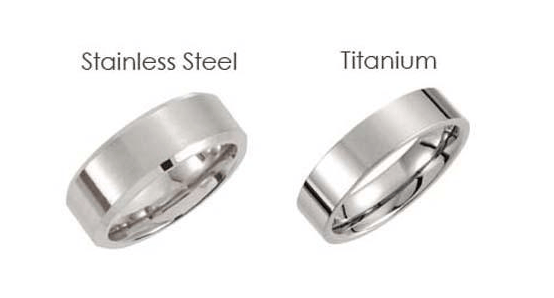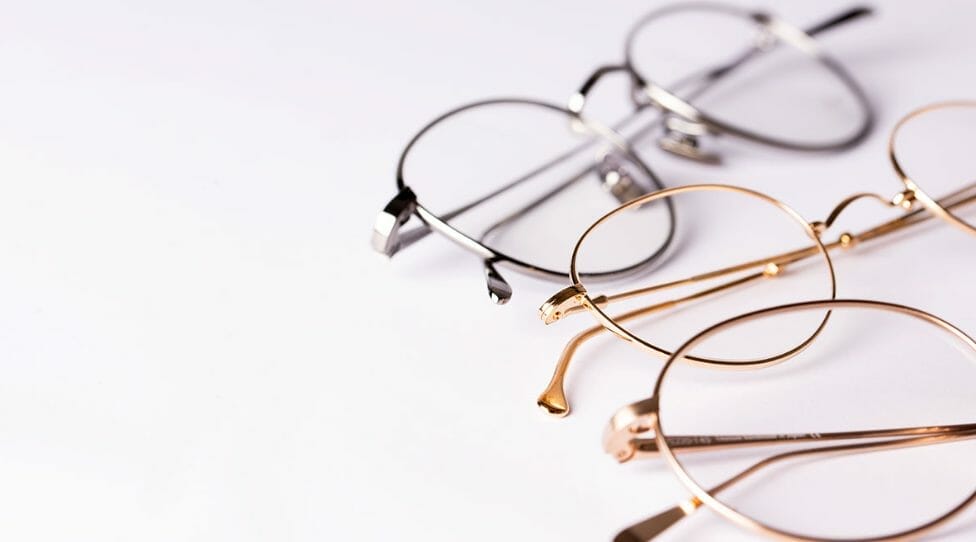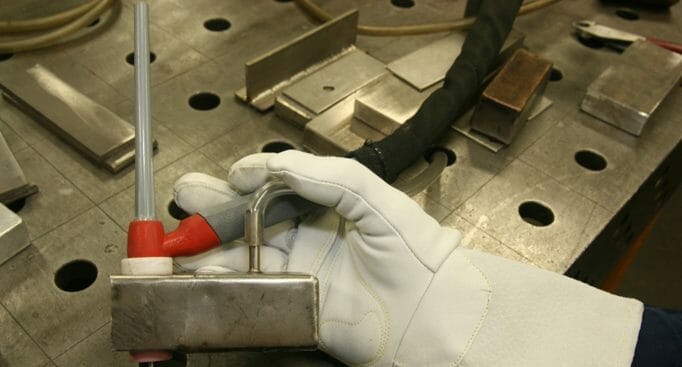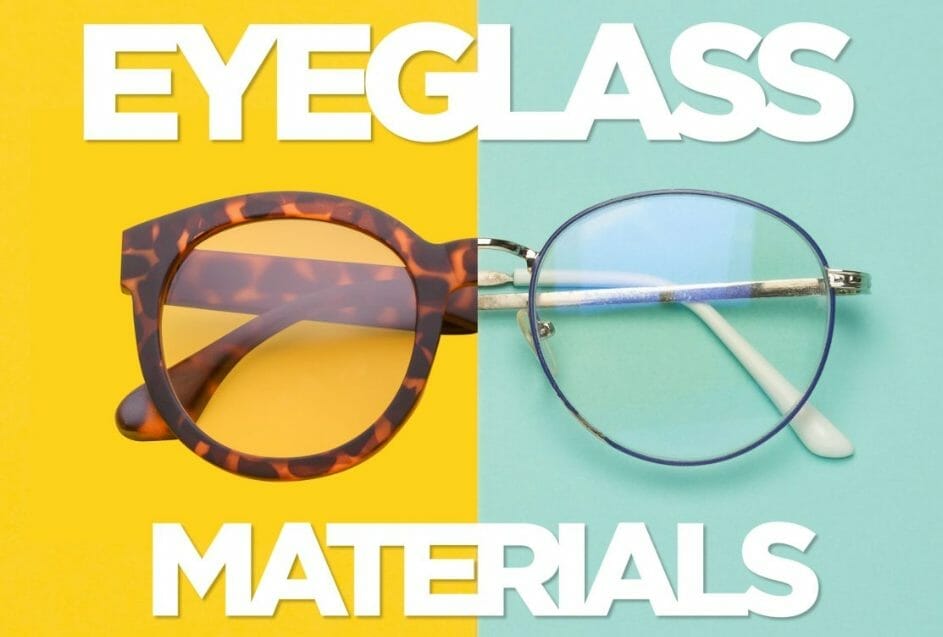When shopping for glasses, the material you choose can have a big impact on their look, feel, and durability. Two of the most popular materials for eyewear are titanium and stainless steel, each with their own unique benefits. In this article, we’ll explore the differences between these two materials and help you determine which one is best for your needs.
Titanium glasses are known for their durability, lightweight construction, and hypoallergenic properties. On the other hand, stainless steel glasses are valued for their strength, affordability, and resistance to corrosion. Let’s dive deeper into the characteristics of each material and examine how they compare in terms of comfort, style, and more.
Understanding the Differences Between Titanium and Stainless Steel Glasses
When choosing eyeglasses, it’s important to consider the materials from which they are made. Two popular options are titanium and stainless steel. While they may look similar, they have distinct differences that make them unique.
Titanium Glasses: Titanium glasses are known for their durability and lightweight construction. This makes them a popular choice for those who lead active lifestyles or work in environments where glasses may take a beating. Titanium is also hypoallergenic, making it a great option for those with sensitive skin.

Stainless Steel Glasses: Stainless steel glasses are known for their strength and resistance to corrosion. They’re also a more affordable option than titanium, making them a great choice for those on a budget. Additionally, stainless steel can be molded into a variety of shapes and styles, giving wearers a lot of options when it comes to their preferred look.
When considering titanium vs. stainless steel glasses, it’s important to keep these differences in mind. The material you choose will impact the glasses’ durability, comfort, and style.
Benefits of Titanium Glasses
If you’re in the market for new eyewear, you may be wondering what sets titanium glasses apart from other options. There are several benefits to choosing glasses made from this high-quality material.
| Benefit | Description |
|---|---|
| Durability | Titanium is incredibly strong, making it resistant to scratches and other types of damage. This means your glasses will last longer and require less maintenance. |
| Lightweight | Compared to other materials, titanium is extremely lightweight. This makes it an excellent choice for people who wear glasses for long periods of time or who are sensitive to the weight of their frames. |
| Hypoallergenic | Some people are sensitive to the metals used in certain types of glasses. Titanium, however, is hypoallergenic, making it a great option for those with sensitive skin or allergies. |
Another benefit of titanium glasses is their versatility. They’re available in a range of styles, from classic to contemporary, so you’re sure to find a pair that suits your personal taste.
Overall, titanium glasses are a great investment for anyone who wants a durable, lightweight, and hypoallergenic pair of frames that will stand the test of time.
Benefits of Stainless Steel Glasses
Stainless steel glasses offer a range of benefits that make them a popular choice for eyewear.
| Benefit | Explanation |
|---|---|
| Strength | Stainless steel is a very strong material that can withstand wear and tear. It can also hold up against impacts, making it a great choice for those who are hard on their glasses. |
| Affordability | Stainless steel glasses are often more affordable than other materials, which makes them a great option for those who are on a budget or looking to purchase multiple pairs. |
| Resistance to corrosion | Stainless steel glasses are resistant to rust and corrosion, which means they can withstand exposure to moisture and other environmental factors better than other materials. |
In addition to these benefits, stainless steel glasses are also hypoallergenic, making them a great option for those with sensitive skin. They are also easy to maintain and require little upkeep.
Overall, stainless steel glasses are a practical and durable choice for eyewear that offer great value for their price.
Durability Comparison: Titanium vs Stainless Steel Glasses
When it comes to durability, both titanium and stainless steel glasses have their strengths. Titanium is known for its exceptional strength-to-weight ratio, making it one of the strongest and most durable metals available. On the other hand, stainless steel is highly resistant to corrosion and can withstand a fair amount of wear and tear.
| Titanium Glasses | Stainless Steel Glasses | |
|---|---|---|
| Strength | Titanium is incredibly strong and has a high resistance to bending and breaking. | Stainless steel is not as strong as titanium, but it is still highly durable and resistant to wear and tear. |
| Weight | Titanium glasses are lightweight, yet strong and durable, making them a popular choice for eyewear. | Stainless steel glasses are heavier than titanium glasses, but still comfortable to wear. |
| Corrosion Resistance | Titanium is highly resistant to corrosion and will not rust, making it ideal for use in humid or wet environments. | Stainless steel is also highly resistant to corrosion and can withstand exposure to water and other liquids. |
Overall, both titanium and stainless steel glasses are highly durable and can withstand a fair amount of wear and tear. Which one is best for you will depend on your personal preferences, budget, and specific needs. For those who require the utmost strength and durability, titanium glasses may be the way to go. For those looking for a more affordable yet still highly durable option, stainless steel glasses are a great choice.
Comfort Comparison: Titanium vs Stainless Steel Glasses
When it comes to eyewear, comfort is a crucial factor in choosing the right pair of glasses. Both titanium and stainless steel glasses offer a comfortable fit, but there are some differences between the two materials that you should consider.
Weight: Titanium glasses are often considered more comfortable due to their lightweight construction. Stainless steel glasses, on the other hand, are slightly heavier but still comfortable for everyday wear.
Fit and adjustability: Both titanium and stainless steel glasses are designed to fit the wearer comfortably. However, titanium frames have more flexibility, allowing for greater adjustability. Stainless steel frames may require more adjustment for the perfect fit but can still be comfortable with proper fitting.

Hypoallergenic properties: If you have sensitive skin, titanium glasses may be a better choice due to their hypoallergenic properties. Stainless steel, while unlikely to cause an allergic reaction, may cause irritation for some wearers.
Overall comfort: Ultimately, the comfort of your glasses will depend on your personal preferences and the fit of the frames. Both titanium and stainless steel can provide comfortable eyewear, but it may be worth trying on both materials to see which feels best for you.
Style Comparison: Titanium vs Stainless Steel Glasses
When it comes to eyewear, style is an important factor for many people. Both titanium and stainless steel glasses offer a range of styles to choose from, but there are some key differences to consider.
Titanium Glasses: Titanium frames tend to have a sleek, modern look. The material is highly malleable, which means it can be shaped into a variety of frame styles, from rimless to semi-rimmed to full frames. Titanium also comes in a range of finishes, including matte, shiny, and brushed, making it easy to find a pair of glasses that match your personal style.

Stainless Steel Glasses: Stainless steel frames are often more traditional in style. They tend to have a classic, timeless look that works well for both casual and formal wear. Stainless steel frames are usually available in fewer finishes than titanium, but they still come in a range of colors and can be polished to a high shine.
When it comes to choosing between titanium and stainless steel glasses, style is a matter of personal preference. Whether you prefer a modern or traditional look, both materials offer a range of options to choose from.
Welding Titanium to Stainless Steel: Can it Be Done?
One of the questions that often comes up when discussing titanium and stainless steel glasses is whether the two materials can be welded together. The short answer is that it’s technically possible, but it’s not always practical or advisable. Let’s take a closer look at why.
The main challenge with welding titanium to stainless steel is the difference in their melting points. Titanium has a much higher melting point than stainless steel, which can make it difficult to achieve a proper weld without damaging the materials. Additionally, the dissimilar composition of the two materials can lead to issues with cracking and distortion during the welding process.

However, under certain circumstances, welding titanium to stainless steel can be necessary. For example, in the manufacturing of medical equipment, a component made from titanium may need to be attached to a stainless steel frame. In these cases, specialized welding techniques and equipment may be used to achieve a successful weld.
That being said, in most cases it’s more practical to choose one material over the other for eyewear frames rather than attempting to weld them together. Each material has its own strengths and benefits, and selecting the right material for your needs is crucial in ensuring the longevity and performance of your glasses.
Read More : Laser Welding Stainless Steel: A Guide to Efficient and Precise Joining
What Are the Advantages of Choosing Stainless Steel for Apple Watch Series 8?
When it comes to the aluminum vs stainless steel apple watch comparison, there are several advantages to choosing stainless steel for the Apple Watch Series 8. Stainless steel offers exceptional durability, making it more resistant to scratches and dings. Its robust nature also ensures better longevity. Additionally, stainless steel provides a sleek and premium look, suitable for those seeking a more elegant and refined timepiece.
FAQ
Q: Are titanium glasses more durable than stainless steel glasses?
A: While titanium is known for its exceptional strength and durability, stainless steel glasses are also very durable and can withstand wear and tear over time. It ultimately depends on your individual needs and preferences.
Q: Are titanium glasses more expensive than stainless steel glasses?
A: Titanium glasses do tend to be more expensive than stainless steel glasses due to the cost of the material. However, the durability and longevity of titanium glasses may make them a worthwhile investment in the long run.
Q: Are there any downsides to wearing titanium glasses?
A: Some people may find that titanium glasses are too lightweight and do not sit comfortably on their face. Additionally, titanium glasses can be difficult to adjust due to their strength and rigidity.
Q:
Can I get prescription lenses for both titanium and stainless steel glasses?
A: Yes, prescription lenses can be added to both titanium and stainless steel glasses. It is best to consult with your eye doctor or optician to ensure that the lenses are properly fitted to the frames.
Q:
Are titanium and stainless steel glasses hypoallergenic?
A: Generally speaking, titanium is considered to be hypoallergenic as it is less likely to cause a skin reaction compared to other metals. Stainless steel can also be hypoallergenic if it is alloyed with certain materials. However, it is always important to check with your optician or eye doctor if you have any concerns about allergies.
Q: Can I bend titanium or stainless steel frames?
A: Titanium and stainless steel frames can be adjusted and bent to some extent, but it is important to have this done by a professional to avoid damaging the frames. Attempting to bend the frames yourself may cause them to break or become misshapen.






